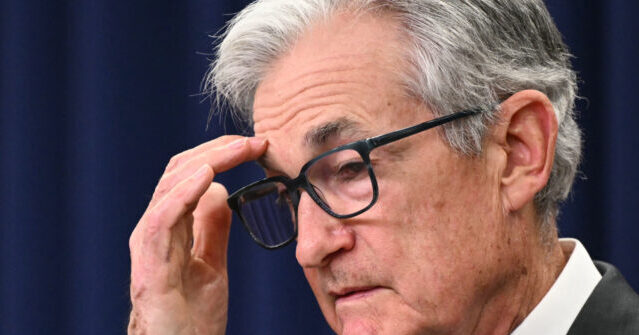Federal Reserve Chair Jerome Powell on Friday signaled that the central bank could lower interest rates as soon as its meeting next month.
Powell, speaking at the Kansas City Fed’s annual conference in Jackson, Wyoming, said the risks of slowing job growth may soon outweigh inflation concerns, clearing a path for rate cuts.
“The balance of risks appears to be shifting,” Powell said.
The Fed chair said the labor market is in “a curious kind of balance” in which both demand for and supply of workers have slowed, warning that the risk of higher layoffs “can materialize quickly” if conditions weaken further.
“With policy in restrictive territory, the baseline outlook and the shifting balance of risks may warrant adjusting our policy stance. Monetary policy is not on a preset course. FOMC members will make these decisions, based solely on their assessment of the data and its implications for the economic outlook and the balance of risks,” Powell said.
The Fed has kept rates unchanged this year after lowering them by one percentage point in 2024, holding policy in restrictive territory while it assessed the effects of tariffs and the development of labor market conditions. Powell’s comments marked a shift toward easier policy as payroll gains dwindled and gross domestic product growth slowed to a 1.2 percent pace in the first half of 2025.
Inflation remains above the Fed’s two-percent target but well below its pandemic highs. The Fed’s preferred inflation gauge, the personal consumption expenditure price index, showed prices rising 2.6 percent from a year earlier in June, with core prices up 2.8 percent. Powell said tariffs are “clearly visible” in higher goods prices and will continue to filter through supply chains, but described the likely outcome as a one-time adjustment in the price level rather than a lasting inflationary cycle.
“The effects of tariffs on consumer prices are now clearly visible. We expect those effects to accumulate over coming months, with high uncertainty about timing and amounts. The question that matters for monetary policy is whether these price increases are likely to materially raise the risk of an ongoing inflation problem,” Powell said. “Higher tariffs have begun to push up prices in some categories of goods…We cannot take the stability of inflation expectations for granted. Come what may, we will not allow a one-time increase in the price level to become an ongoing inflation problem.”
The comments came after months of public pressure from President Trump, who has called for aggressive rate cuts and criticized Powell directly. Earlier this week, Trump urged the Fed board to take full control of policy away from him and argued that higher rates were damaging housing and manufacturing.
Markets rallied on Powell’s remarks. Stocks climbed, Treasury yields fell and the dollar weakened, as investors increased bets on a rate cut at the Fed’s September meeting. The CME Fedwatch tool’s odds of a September cut jumped from 75 percent yesterday to 91 percent.
Read the full article here


